With an estimated 11.75% of people worldwide diagnosed with a learning disorder, it is highly likely that you have at least several members in your lodge that struggle with reading and learning the ritual.
This article focuses on what can be done to help make life easier for those with reading and learning difficulties, something that should never be a barrier to learning ritual or indeed, never cause anyone to be embarrassed. Learning difficulties DO NOT affect general intellect.
What is a learning disorder?
There are many different types of learning disorders, some examples include:
Dyslexia: Difficulty in reading and interpreting written words.
Dyscalculia: Difficulty in understanding and working with numbers and math concepts.
Dysgraphia: Difficulty with writing, including issues with spelling, grammar, and organization.
Attention Deficit Hyperactivity Disorder (ADHD): Difficulty with attention and impulse control.
Auditory Processing Disorder (APD): Difficulty in processing and understanding information that is heard.
Nonverbal Learning Disorder (NLD): Difficulty in understanding nonverbal cues such as facial expressions, body language, and tone of voice.
Dyspraxia – impaired coordination of physical movements
Learning Ritual – taking the plunge

So what do you do when faced with that little blue book? Most Masons when first looking at the ritual book can understandably be fazed – the tiny print, the missing words, the questions and answers!
Learning ritual can be a challenging task for anyone, especially individuals with learning disorders, but it is not impossible. Here are some tips to help make the process easier:
• Start small: Instead of trying to learn a complex ritual all at once, break it down into smaller, manageable pieces. This will make it easier to focus on one aspect of the ritual at a time and reduce the likelihood of feeling overwhelmed.
• Use visual aids: Visual aids such as diagrams or pictures can be helpful in understanding the different steps and components of a ritual. The use of mnemonics such as in the Memory Palace method could be a great way to remember key points or answers to questions.
• Repeat, repeat, repeat: Repetition is key when learning a new ritual. The more you practice, the more familiar the ritual will become and the easier it will be to remember.
• Find a mentor or guide: Having someone who can guide you through the process of learning a ritual can be incredibly helpful. This person can provide support and answer any questions you may have. Your lodge Mentor, Proposer or any other Brother will hopefully be more than willing to assist you in making headway with your ritual.
• Be patient with yourself: Learning a new ritual can be difficult, and it’s important to be patient with yourself and not to get discouraged if you make mistakes. Remember that everyone learns at a different pace and it may take longer for you to learn the ritual than someone without a learning disorder.
• Use technology:
Apps – there are various apps that can help you with learning, such as flashcard apps.
Audio – ask another member to record sections of the ritual for you to listen to and memorise.
Video – perhaps consider asking if you can record certain movements, so as to memorise them.
• Take breaks: Don’t try to learn all in one sitting. Take breaks, and come back to it later.
With these tips in mind, learning a new ritual can be a manageable and even enjoyable experience. Remember to take things one step at a time, and don’t be afraid to ask for help if you need it.
How can other Brethren help
• Be aware and understanding: People with learning disorders may need extra time or assistance to complete tasks or understand information. Being aware of this and being understanding and patient can help create a more inclusive environment. Most Candidates are understandably nervous before their initiation – those with learning disorders or other disabilities are going to be even more anxious – take time to accommodate any needs.
Those who also suffer with dyspraxia may experience uncoordinated movement, which will make them even more nervous when it comes to moving around the lodge and may need assistance to perform certain steps or circumambulations.
• Encourage participation: A big part of Masonic ritual and lodge work involves participation. People with learning disorders may feel hesitant in taking on roles where they have to learn even more ritual – helping them to overcome any nerves and assisting them with their learning will increase confidence, not only in lodge but in their everyday lives.
• Provide accommodations: If the individual has disclosed their learning disorder, it’s important to provide accommodations when necessary, such as extra time to learn, when reading aloud, or responding to questions.
• Use different teaching methods: Different teaching methods such as visual aids, hands-on activities, and group work can help individuals with learning disorders better understand and retain information.
• Be clear and concise: When giving instructions or information, be clear and concise. Avoid using jargon or complex language and break down information into smaller, manageable chunks if needed.
• Provide feedback: Provide feedback to the individual on their progress, and encourage them to ask questions if they are unsure about something.
• Be supportive: Be supportive and encouraging, and avoid being critical or dismissive. Remember that people with learning disorders are capable of learning and achieving their goals just like anyone else.
• Foster independence: Help the individual learn to advocate for themselves and to identify strategies that work for them. Encourage and support them to take control of their own learning process.
It’s important to remember that each individual with a learning disorder is unique, and what works for one person may not work for another. It’s important to be flexible and willing to try different strategies to find what works best for the individual.
Further Resources:
Apps that incorporate flashcards or learning tools:
NaturalReader: – text-to-speech reader that allows you to upload text and documents to convert to MP3 files. Listen to in 16 different languages.
Quizlet: – Quizlet’s science-backed free flashcards and practice tests can help you practice active recall
Anki: A flashcard app that uses a spaced repetition algorithm to help users efficiently memorize information. Anyone who needs to remember things in their daily life can benefit from Anki. Since it is content-agnostic and supports images, audio, videos and scientific markup (via LaTeX), the possibilities are endless.
Flashcards Deluxe: A flashcard app that allows users to create flashcards, take quizzes, and track their progress.
List of organisations who can help with learning disorders
Dyslexia UK provide support and services for dyslexic children and adults of all ages, their parents/families, educators, employers and the wider community.
International Dyslexia Association (IDA) – A non-profit organization that provides information and resources on dyslexia and other related language-based learning disorders.
National Center for Learning Disabilities (NCLD) – A non-profit organization that provides information and resources on a variety of learning disorders, including dyslexia, dyscalculia, and ADHD.
Additude Magazine – for all things ADHD
Recent Articles: skills
 7 Soft Skills Taught In Freemasonry Discover how Freemasonry nurtures seven irreplaceable soft skills—collaboration; Communication, Teamwork, Empathy, Flexibility, Conflict Resolution, Active Listening, and Trustworthiness. Explore how these essential human attributes, grounded in emotional intelligence and ethical judgment, remain beyond the reach of AI. |
 Freemasonry and Reskilling in the age of AI The article explores the challenges and strategies organizations face in reskilling their workforce in the era of automation and artificial intelligence. It highlights the need for companies to view reskilling as a strategic imperative and involve leaders and managers in the process. The article also emphasizes the importance of change management, designing programs from the employee's perspective, and partnering with external entities. |
 Ten Central Commandments or Principles of Freemasonry Embrace the wisdom of Freemasonry's teachings in your personal journey towards self-improvement and stronger leadership. By upholding virtues of integrity, compassion, and respect, and uniting these with a commitment to continuous learning and social responsibility, inspire change. Transform yourself and the world around you, fostering a legacy of positivity and enlightenment. |
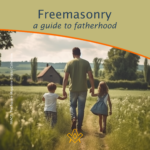 Freemasonry: A Guide to Fatherhood In the sacred halls of Freemasonry, fathers discover a hidden power to transform their parenting journey. With its timeless values, supportive community, and life-enriching teachings, Freemasonry empowers fathers to provide a moral compass, foster self-improvement, build stronger connections, and embrace the confidence and wisdom needed to navigate the complex realm of fatherhood. |
 Courage as a core value in Freemasonry Freemasonry, a revered fraternity, prioritizes virtues like honesty and charity. However, courage is foundational. From Plato to Maya Angelou, courage is vital for other virtues. Freemasonry's teachings, referencing events like Gettysburg, emphasize diverse courage forms. In today's divided world, Masons promote and exemplify courage, understanding its importance in facing challenges. |
 How Freemasonry Cultivates Ideal Entrepreneurial Traits Freemasonry's cryptic rituals hold timeless lessons for building entrepreneurial greatness. Through tests of passion, vision and skill, Masonic teachings forge ideal traits like grit, creativity and alliance-making needed to seize opportunity and elevate enterprises. The right commitment unlocks code for entrepreneurial success. |
 What you see praiseworthy in others "What you see praiseworthy in others, carefully imitate, and what in them may appear defective, you will in yourself amend". This passage of Masonic ritual (Taylors Working, Address to the w |
 How to Learn Ritual with a Learning Disorder So what do you do when faced with that little blue book? Most Masons when first looking at the ritual book can understandably be fazed – the tiny print, the missing words, the questions and answers! Learning ritual can be a challenging task for anyone, especially individuals with learning disorders, but it is not impossible. Here are some tips to help make the process easier. |
 A "mind palace", also known as a "memory palace", is a technique for memorizing and recalling information. How would your life change if you could remember anything and everything? Discover the 'Mind Palace' and all will be revealed. |
 What is leadership and who does freemasonry help develop those skills needed to be a better leader |
 A story of the 'Ruffians' – those individuals whose paths cross ours, who feel entitled to seize and consume the property of others that they have not earned. A lesson to build character to be a better citizen of the world. |
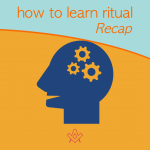 Now we are back in the Lodge room once again, maybe it is time to review how we learn and deliver ritual and look at different ways of improving that process. |
 Making an advancement in Masonic Knowledge can become far easier when you 'learn how to learn'. |
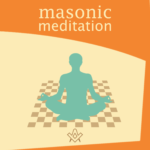 Learn how to practise Masonic meditation in a busy world with all its care and employments |
 Struggling to learn your ritual? Become a 5-Minute Ritualist with the aid of a book of the same name. |
 Day in the life of a Freemason As we start a new year, maybe start it with a new habit? |
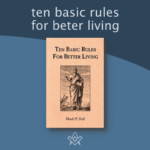 Ten Basic Rules For Better Living Ten Basic Rules For Better Living by Manly P Hall |
 How can we use masonic leadership skills to avoid confrontational situations? |
 How the Trivium is applied to Critical Thinking - {who, what, where, when} - {how} - {why} |
 The Seven Liberal Arts - why 'seven', why 'liberal', why 'arts'? |
 How to improve your public speaking skill with 6 techniques |
 Do you need to speak in public, or present Masonic ritual without notes ? |
 What are logical Fallacies and how to spot them |
 Share one easy tip to learn masonic ritual; Some good tips from Facebook followers |
 How can we use the 7 secrets of the greatest speakers in history |
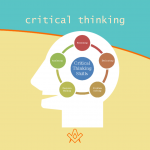 What is a critical thinker and what are their characteristics? |
 Share one personal skill Freemasonry helped you to improve? How can we make practical use of the lessons taught in Masonic writings? |
 An introduction to the art of public speaking - speak with confidence |
 Seven Liberal Arts and Sciences What do you know about Seven Liberal Arts and Sciences |
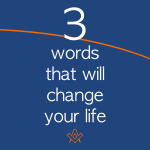 Three Words That Will Change Your Life This article discuss a common situation found in many lodges - a difficulty in holding a conversation with a stranger. |
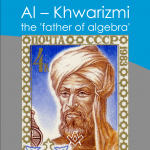 Al - Khwarizmi live c750 - c820 is credited as being the father of Algebra, being asked what is Man, give his answer in an algebraic expression |
masonic knowledge
to be a better citizen of the world
share the square with two brothers

click image to open email app on mobile device







